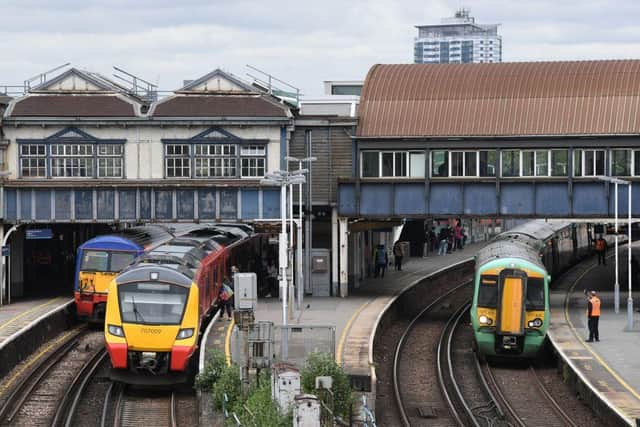If the government is serious about the climate crisis, it’s time to act on soaring public transport costs
and live on Freeview channel 276
In recent days, council-funded banners encouraging people to walk, cycle or use public transport instead of driving have been cropping up around the Leeds suburb where I live.
“Which journey could you swap?” says one. “Leave your car at home,” implores another.
Advertisement
Hide AdAdvertisement
Hide AdThe aim of the campaign - to reduce car journeys, and thus emissions - is laudable. Yet as a local resident who took the bus to work pre-pandemic, I couldn’t help but feel a pang of cynicism when I saw them.


A single bus journey to work cost me somewhere in the region of £3.70 for a single, for a journey of roughly 15 minutes. Buses, if they came, were rarely on time and frequently too full to let extra passengers on. More than once, I stood in the freezing cold for over 40 minutes waiting before giving up and getting an Uber instead - costing a mere pound or two extra.
Though Leeds, a large city without a metro or tram network, is somewhat of a special case when it comes to poor public transport, for millions across the country, driving or taking a taxi has long been the easier, cheaper way to get around.
It’s a fact that stands at odds with the UK’s huge ambitions on climate, which have come into focus ahead of the G7 this week. While the PM claims the country is aiming for net zero, his government have done nothing to establish cheap, hassle-free alternatives to driving that would cut down emissions from cars. It’s a failure that’s seen CO2 emissions from cars rise year-on-year, despite growing fears over global warming.
Advertisement
Hide AdAdvertisement
Hide AdThe figures on these spiralling costs are stark: between 2011 and 2021, the cost of motoring rose by just 9.05% on average. In that same timeframe, the cost of rail travel rose 37.3%, and the cost of bus and coach travel a whopping 75.2%. All the while, the average UK wage rose just 24%.


This staggering cost of public transport translates not just into higher motoring emissions, but higher aviation emissions too, with people able to actually save money by journeying further and holidaying in Europe instead of the UK.
At the time of writing, it would cost me £134 return (with a 16-25 railcard) to get to Cornwall and back in July - almost double the cost of flying to Palma and back on the same weekend.
And while many opt for foreign holidays out of personal preference, the relatively low cost of flying to Spain over a UK beach holiday can’t be factored out of the equation.
Advertisement
Hide AdAdvertisement
Hide AdSimilarly, while there exists a faction of Brits who see driving as akin to a human right, it seems only inevitable that access to a green, affordable and efficient public transport system would sway many the other way.
Without such infrastructure, the introduction of admirable schemes like clean air zones will only disadvantage the poorest drivers, with minimal impact on the reduction of UK emissions as a whole.
The urgency of the situation couldn’t be any clearer, with London-born Ella Kissi-Debrah, who died aged nine, becoming the first person in the world whose death was directly linked to air pollution last year.
To avoid further tragedies like this, UK car use needs to fall dramatically. Without providing viable, cheap alternatives to driving, however, the government will find willingness in very short supply.
Comment Guidelines
National World encourages reader discussion on our stories. User feedback, insights and back-and-forth exchanges add a rich layer of context to reporting. Please review our Community Guidelines before commenting.
